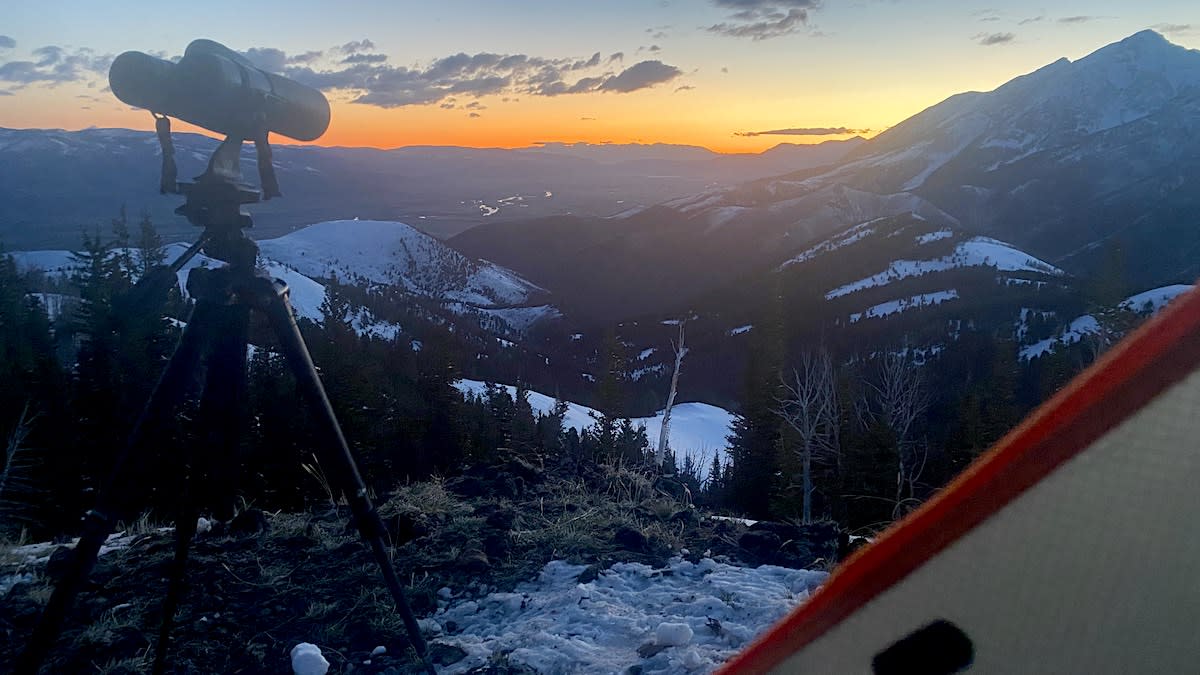
Pick up your phone right now. Dial (202) 224-3121 and hit the green button. When you reach the congressional switchboard, tell them where you’re from and ask to be connected to your Senator’s office. When you get through, tell the staffer who answers that you want your elected representative to vote in favor of the Great American Outdoors Act. That’s it. And you might be shocked at how much of a difference it makes.
Tomorrow, Wednesday June 17, the full United States Senate will vote on the Great American Outdoors Act. This legislation includes full and permanent funding for the popular and successful Land and Water Conservation Fund, as well as nearly $10 billion over five years to fix old roads, bridges, and other infrastructure in our National Parks, National Forests, and other American public lands—all using royalties from existing oil and gas leases. MeatEater’s Conservation Director Ryan Callaghan called it “the largest outdoor package we will likely see in our lifetime.”
But, although the bill’s chances look good with strong support from Republicans and Democrats alike, leaders of the conservation community need your help to get it over the finish line and placed on the president’s desk. And all you have to do is make a two-minute phone call.
Land Tawney is the president and CEO of Backcountry Hunters & Anglers. He and many others have been working their whole careers toward this goal.
“LWCF is the number one access tool of the century. You should be excited about it,” Tawney told MeatEater. “And I will guarantee you’ve probably hunted or fished on a place made available by the Land and Water Conservation fund and you might not know it.”
Callaghan, Tawney, and countless others involved in this process encourage every American to get involved. The bill has momentum, but that doesn’t mean anti-public lands Senators like Mike Lee of Utah, Rand Paul of Kentucky, and Ted Cruz of Texas won’t try to derail it. If you live in those states, your call is even more important.
“Every staffer, every Senator that we’ve talked to during this process, says make the damn phone call. It’s so easy to do,” Tawney said. “Think about what that act [LWCF] has done and only been fully funded twice in this entire 56-year history. We’re talking about $900 million every single year.”
LWCF has helped pay for more than 40,000 projects in nearly every county across the country. From public land access easements, fishing access sites, to municipal baseball diamonds and playgrounds—the LWCF pays for the outdoor recreation we all enjoy. And it’s accomplished all that without having full support for the vast majority of its existence. Reauthorization and full, permanent funding have been just about the biggest goals of the conservation community for the past decade.
“This is like we’ve been on this huge marathon and now it’s a sprint to the finish. Hopefully we’ll get full passage in the Senate, then we’ll celebrate for a little bit, and then we’ll go to the House. And the House is just as important.”
Conservationists hope that the bill has enough support in the House of Representatives that it will be taken up quickly and considered under suspension, which would limit debate and the introduction of potentially damaging amendments. President Trump has expressed his support for this legislation and is expected to sign it once it passes the House.
This bill opens up no new public lands or waters to oil and gas exploration. Millions of acres of publicly owned areas are already being drilled. These funds seek to compensate the American people for the destruction those activities cause on the lands and waters we own collectively. Drilling leases will continue to be issued on a case-by-case basis that includes public comment periods and opportunities to object. Unlike social programs or entitlements, this bill will draw no funds from tax dollars. Although oil prices are currently near historic lows, these monetary amounts will still be met since they are a drop in the bucket relative to the federal government’s overall revenues from energy extraction. Though some worry that this legislation further chains the United States to fossil fuel production, others argue that this is the best deal we’re going to get in the present moment.
“Just make the call,” Callaghan said. “Call tonight and leave a message or call Wednesday morning before the vote. After that, call your representatives in the House. This is a huge deal and we’re all going to benefit from passing the Great American Outdoors Act.”
The number is (202) 224-3121. Dial it now.
Feature image by Sam Lungren.




Conversation